
In the Vineyard :: March 6, 2023 :: Volume 23, Issue 5
National News
Lenten Thoughts
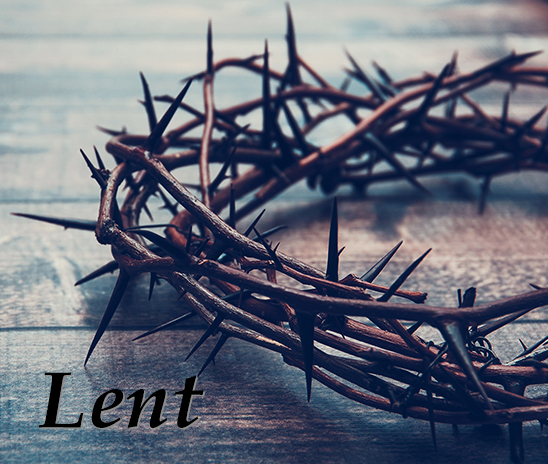
Looking for something new to do for Lent? Join Caritas Canada – Development and Peace, as they Stand for the Land. Inspired by Pope Francis’s October 2021 address to the World Meeting of Popular Movements, Caritas Canada has chosen Create Hope as their guiding theme for the next five years.
To create hope in this first year, they will Stand for the Land in solidarity with our sisters and brothers who are defending their territories in the Global South by protecting their lands and waters, the environment and human life. To learn more about their approach, click here.
The organization educates the Canadian population about the causes of impoverishment of peoples and mobilizes actions for change.
In the struggle for human dignity, Development and Peace associates with social change groups in the North and South.
It supports women in their search for social and economic justice.
Development and Peace—Caritas Canada, the official development organization of the Canadian Catholic Church, is inspired by the values of the Gospel, particularly the preferential option for the poor.
To support their work, click here.
Other Resources for Lenten Reflections
Boston College offers an online retreat March 9 and 10 from 12:30 pm to 1:45 pm (Eastern). “Befriending Jesus – Virtual Lenten Retreat,” will be directed by Catholic writer and speaker Laura Kelly Fanucci and the C21 Center Team and will cover “two key friends of Jesus and what their relationships reveal for our own.” You must register first but the course itself is free.
The USCCB website hosts bilingual daily Lenten reflections.
The Busted Halo website (Paulist Fathers) has a daily reflection calendar and a link to additional Lenten resources.
If you have resources you would like to share with others, please send them to Vineyard@votf.org and we will share them.
Message of His Holiness Pope Francis for Lent 2023
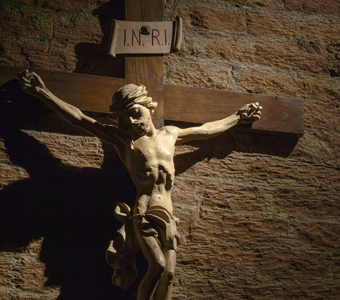
In the message, the Holy Father highlights “Lenten penance” as “commitment, sustained by grace, to overcoming our lack of faith and our resistance to following Jesus on the way of the cross. This is precisely what Peter and the other disciples needed to do.”
In this sense, to “understand and embrace the mystery of his salvation, accomplished in total self-giving inspired by love, we must allow ourselves to be taken aside by him and to detach ourselves from mediocrity and vanity,” Francis stressed.
Highlights from the Pope’s message include:
“Lent is a time of grace to the extent that we listen to him as he speaks to us. And how does he speak to us? First, in the word of God, which the Church offers us in the liturgy. May that word not fall on deaf ears”.
“Lent leads to Easter: the “retreat” is not an end in itself, but a means of preparing us to experience the Lord’s passion and cross with faith, hope and love, and thus to arrive at the resurrection.”
“While our ordinary commitments compel us to remain in our usual places and our often repetitive and sometimes boring routines, during Lent we are invited to ascend ‘a high mountain’ in the company of Jesus and to live a particular experience of spiritual discipline – ascesis – as God’s holy people.”
“The Lenten journey of penance and the journey of the Synod alike have as their goal a transfiguration, both personal and ecclesial. A transformation that, in both cases, has its model in the Transfiguration of Jesus and is achieved by the grace of his paschal mystery.”
“Lenten penance is a commitment, sustained by grace, to overcoming our lack of faith and our resistance to following Jesus on the way of the cross.”
Synod Thoughts: Is There Room in the Tent?
Open Tribune: An intervention in the context of the debate on women deacons by Phyllis Zagano, Ph.D. Dr. Zagano is is senior research fellow in residence and adjunct professor of Religion at Hofstra University, Hempstead, New York. In 2016, she was appointed by Pope Francis to the Study Commission on the Diaconate of Women.
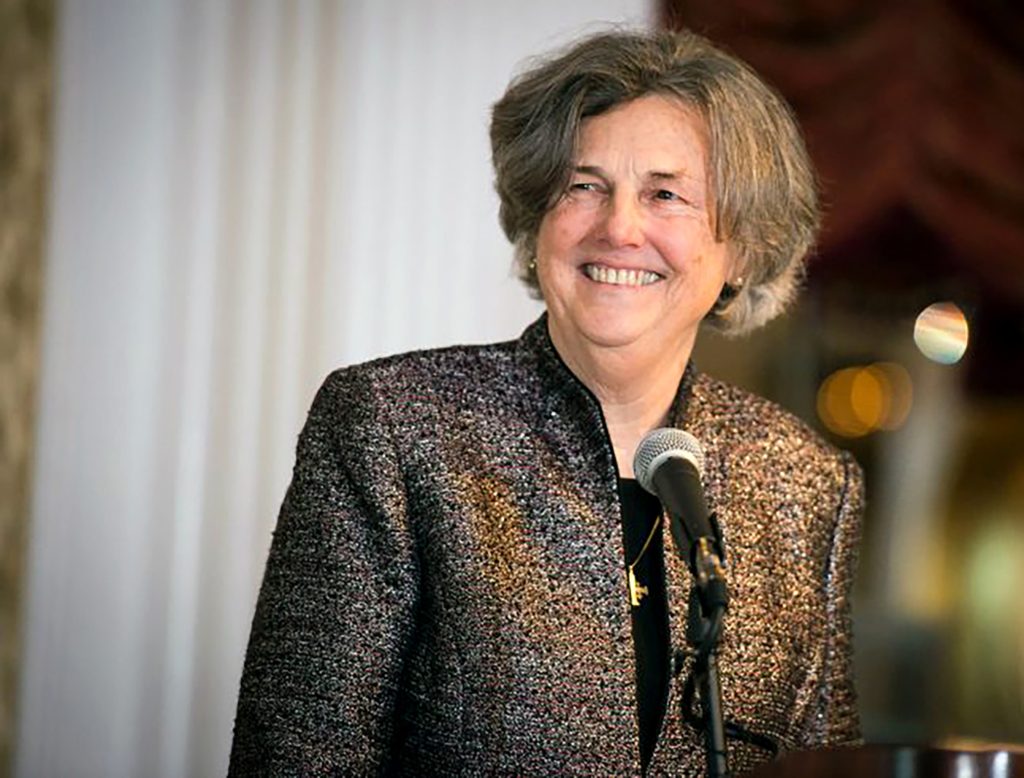
As the Church prepares for the next phase of the Synod on Synodality, one of the most pressing issues is the relationship between women and the Church, combined with the problem of clericalism. The Working Document clearly states that “almost all reports raise the issue of full and equal participation of women.” (No. 64.)
Many national reports asked to restore women to the ordained diaconate, yet the Synod’s Working Document for the Continental Stage refers to “a female diaconate.” Does this indicate ongoing discernment about the ability of women to receive sacramental ordination as deacons, despite the historical evidence of ordained women deacons? While women are increasingly included as professional managers within Church structures, notably within the Roman Curia, deep resistance to accepting historical precedence of women’s ordained ministry remains.
Can the Church overcome clericalism and the denial of history?
Preach the Gospel!
Pope Francis’s Apostolic Constitution Praedicate Evangelium: On the Roman Curia and Its Service to the Church in the World makes it abundantly clear that the Church’s mission is to preach the Gospel. The Apostolic Constitution breaks the link between clerical status and Curial service, taking a major step in preaching the Gospel truth of the equality of all persons.
In fact, preaching the Gospel is a task for all Christians, but preaching the Gospel during the liturgy of the Mass is a specific diaconal task.
While historical records and liturgical manuscripts demonstrate that both Eastern and Western bishops ordained women as deacons, controversy lingers over the exact nature of those ordinations. Even so, history affirms that bishops in different eras and in various territories ordained women as deacons within the sanctuary, during Mass and in the presence of other clergy, through the imposition of hands and the invocation of the Holy Spirit. The new women deacons self- communicated from the chalice and the bishop placed a stole around their necks. Most importantly, the bishop called these women deacons, like Saint Phoebe before them (Rom 16:1-2).
Contemporary discussion revolves around two questions: 1) can a woman represent Christ, the Risen Lord? 2) does the ban on women priests apply to women deacons? Despite some scholarly obfuscation, the answers are clear: yes, women can image Christ; no, the priesthood is not the diaconate.
Can a woman represent Christ?
The so-called “iconic argument,” that a woman cannot represent Christ, appeared in the Sacred Congregation for the Doctrine of the Faith’s declaration Inter Insigniores: On the Question of Admission of Women to the Ministerial Priesthood (October 15, 1976). The declaration cites Saint Thomas Aquinas’s statement that “Sacramental signs represent what they signify by natural resemblance,” further arguing that the necessary “natural resemblance” is to the maleness of Jesus, “for Christ himself was and remains a man.” Such emphasizes the accident of gender over the substance of the Incarnation: God became human. The human male Jesus is not the Risen Lord, the Christ whom all Christians can represent.
The second major point in Inter Insigniores is that Jesus chose only male apostles, thereby affirming the document’s early statement: “The Catholic Church has never felt that priestly or episcopal ordination can be validly conferred on women.” But in supporting its “iconic argument,” Inter Insigniores does not mention the diaconate. Eighteen years after Inter Insigniores, John Paul II’s Apostolic Letter Ordinatio Sacerdotalis: On Reserving Priestly Ordination to Men Alone (1994), dropped the “iconic argument.” Ordinatio Sacerdotalis does not mention the diaconate.
Does the ban on women priests apply to women deacons?
While neither Ordinatio Sacerdotalis nor Inter Insigniores addresses the question of women deacons, some commentators present what they term the “unicity of orders” to connect the diaconate and the priesthood. Their argument assumes that diaconal ordination implies eligibility for priestly ordination and because women cannot be ordained priests, neither can they be ordained as deacons.
The false reasoning of the “unicity of orders” argument is rooted in the medieval cursus honorum (course of honor), the clerical steps from tonsure through the minor orders of porter, lector, exorcist, acolyte and the major orders of subdeacon, deacon, and priest. The cursus honorum required that anyone to be ordained deacon had to be eligible for priestly ordination, effectively ending the diaconate as a permanent vocation.
Although diaconal ordination had become only a step toward priestly ordination, the Council of Trent (1545-1563) discussed the minor orders and the diaconate. During its Twenty-third session, as the Council was nearing its end, it approved a canon allowing married clerics to exercise the four minor orders. The Council also apparently affirmed the sacramentality of diaconal ordination, despite continued academic discussion on the question. Any discussion then about the historical ordinations of women, known to the 12th century in the West, is unknown.
Restoring and Renewing the Diaconate
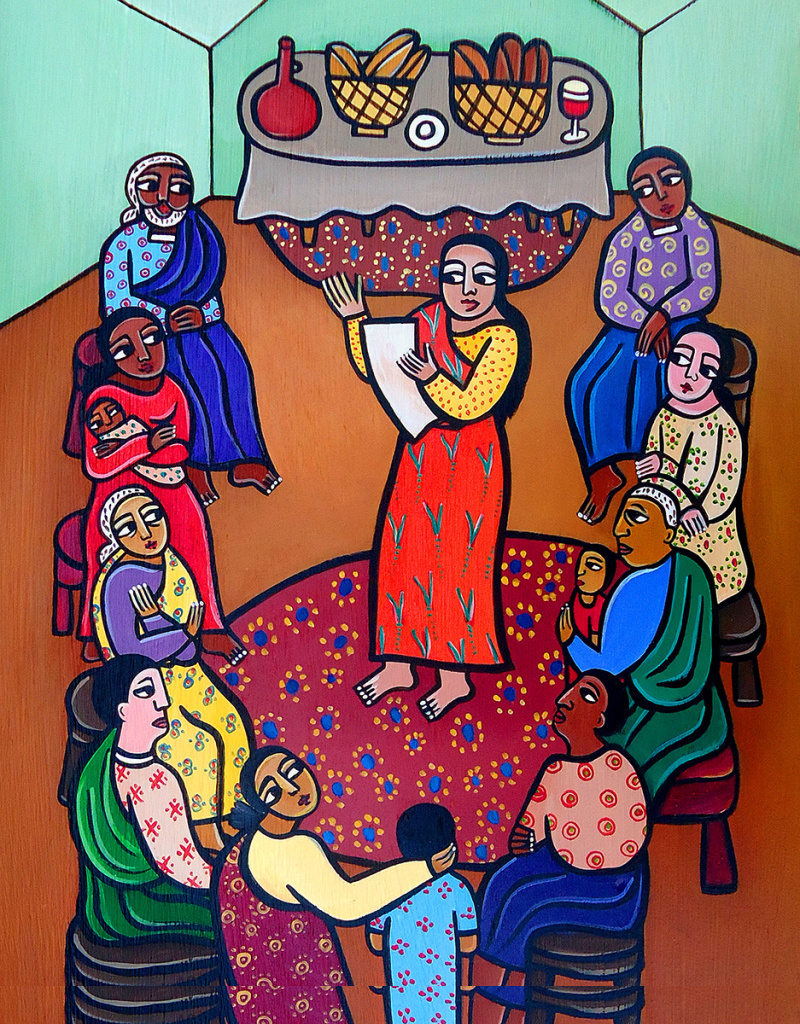
Since its restoration by the Second Vatican Council as a permanent office to include married men, the diaconate has flourished. Lumen Gentium 29 affirmed that deacons receive the imposition of hands “not unto the priesthood, but unto a ministry of service,” and to date some 47,000 men have accepted the call to ordained diaconal ministry.
Two bishops, one from Italy and another from Peru, had suggested women deacons to the Council, which took no decision. Some years later, Paul VI reportedly asked the International Theological Commission (ITC), or some of its members, to review the question. Both Cipriano Vagaggini, a member of the ITC, and Philippe Delhaye, its secretary, wrote positively about ordained women deacons in the 1970s, joined by Roger Gryson. A decade later Aimé-Georges Martimort published a negative rejoinder.
While an ITC subcommittee studied the topic between 1992-1997, its reported positive report was not published.
Then, in 1998, the Congregation for Catholic Education’s Ratio fundamentalis institutionis diaconaorum permenentium affirmed, “with sacred ordination, he [the deacon] is constituted a living icon of Christ the servant within the Church,” possibly attempting to eliminate the restoration of women to the order.
By 2002, a second ITC subcommittee report identified the deacon as being and as acting in persona Christi servi, revivifying the abandoned “iconic argument.” The ITC subcommittee stated that male and female deacons of history did not share identical tasks and duties, overlooking the sacramental tasks of women deacons. Further, it wrote that their ordination rites differed, ignoring those rites that were identical excepting for the use of pronouns. Importantly, the 2002 document affirmed that the diaconate and the priesthood were distinct orders, concluding that the question of women deacons required a Magisterial decision.
At the request of the International Union of Superiors General (UISG), Pope Francis named a commission to study women in the diaconate that met between 2016 and 2018. He called a second commission in 2020, which seems to have met between 2021-2022. Neither commission report has been published.
What can the Synod do?
The point of the Synod is to prepare a listening Church, one that surely listens to questions about inclusion, but one that listens as well to the Word of God as clarified by the Magisterium. Some issues are genuinely painful, and the People of God may find it difficult to “walk together” when the answer to their questions is “no.”
But the question of restoring women to the ordained diaconate, a permanent vocation that does not imply eligibility for priesthood, is easy to answer in the affirmative. The historical, anthropological, and theological work is complete. Women were ordained as deacons. Women are made in the image and likeness of God. The diaconate is not the priesthood.
People around the world have asked the Church to outgrow clericalism and recognize the managerial and ministerial abilities of women. There is progress in adding women to management. The extended Synod process should not delay the restoration of women to ordained diaconal ministry.
For additional reading, see our Women’s Emerging Voices web page and links to Dr. Zagano’s paper on Women Deacons: The State of the Question” in Doctrine & Life [“Les femmes diacres catholiques: un état de la question” ISTINA, LXVII (2022) 289-308. Translated: “Catholic Women Deacons: The State of the Question Part I: Learning from Scripture and History” Doctrine & Life 72:9 (November 2022) 2-12 and “Catholic Women Deacons: The State of the Question Part II: Contemporary Analysis” Doctrine & Life 72:10 (December 2022) 35-50.]
Finance Working Group Research Periods

Voice of the Faithful will be conducting its annual reviews of diocesan financial transparency and accountability during the spring and summer of 2023. Once each review begins, the researchers will not be available to answer questions about specific diocesan websites. Administrative officials who would like additional information prior to the start date are welcome to communicate with the chair of the Working Group prior to that time.
- Diocesan Finance Council review: March 15 through May 15, 2023
- Financial Transparency and Accountability: June 1 through August 31, 2023
Additional information on past reports is on our website.
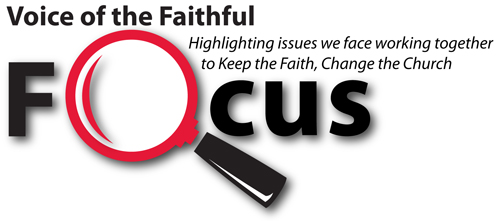
Top Stories
New archive of Santa Fe clergy abuse documents hailed as unprecedented
“An unprecedented public archive of clergy sexual abuse documents is being established at the University of New Mexico thanks to a collaborative agreement between abuse survivors and the Archdiocese of Santa Fe. The archive, documenting one of the U.S. Catholic Church’s epicenters of sexual abuse and coverup, is the result of a commitment Santa Fe Archbishop John Wester made to the creditors’ committee that represented clergy sex abuse claimants in the archdiocese’s concluding Chapter 11 bankruptcy case.” By Elizabeth Hardin-Burrola, National Catholic Reporter
The Catholic Church in crisis
“As the shockwaves of last week’s revelations about child sexual abuse within the Catholic Church in Portugal subside somewhat, it is worth remembering that Catholicism has been at the forefront of atrocious behavior towards children for centuries. The Catholic Church has certainly not been the only religious or political entity involved in inhumane activity, and historical records are just a backdrop to the moral misconduct in recent decades that has at last been highlighted by those Catholics who have courageously lifted the veil of silence on abuse.” By Len Port, PortugalResident.com
- Priest accused of embezzling €800,000 from social solidarity institutions, By Natasha Donn, PortugalResident.com
New suit alleges San Diego Catholic diocese transferred assets to avoid sex abuse claims
“A law firm representing alleged sexual abuse victims in California is suing the Roman Catholic Diocese of San Diego, claiming the diocese fraudulently moved around real estate assets in an attempt to hide its wealth and avoid paying child sex abuse claims. The suit, filed Tuesday (Feb. 21) by the Zalkin Law Firm in San Diego County Superior Court on behalf of more than 100 plaintiffs, alleges that the diocese transferred at least 291 real estate parcels, with a total tax-assessed value of more than $453 million, to parish corporations in order to defraud creditors at a time when the diocese was aware of ‘significant claims’ by victims of childhood sex abuse.” By Alejandra Molina, Religion News Service
- Diocese of San Diego accused in lawsuit of transferring real estate assets to avoid paying settlements, By Sam Ribakoff, Courthouse News Service
- Roman Catholic Diocese of San Diego accused of fraudulently transferring assets to foil sex abuse liability, By Greg Moran, San Diego Union-Tribune
Pope Francis has opened the door to real Church reform but hasn’t stepped through
“The 10th anniversary of the election of Pope Francis offers an opportunity to consider the contributions and missteps of this remarkable pontificate. As a comprehensive assessment is impossible, I will consider the related contributions of this pontificate to the theology, structure, and exercise of ministry and authority. From the beginning of his pontificate Francis has emphasized the priority of Christian baptism … For the pope, ‘laicity’ is not a negative term, identifying the non-ordained; rather it identifies the fundamental missionary calling conferred upon all of us in baptism.” By Richard Gaillardetz, National Catholic Reporter
Click here to read the rest of this issue of Focus …
We are Never Truly Alone
In a column from this week’s Discerning Deacons email, Anna Robertson focuses on how women have always been there for the Catholic Church. She quotes the Vatican’s Document for the Continental Stage (DCS): “In a Church where almost all decision-makers are men, there are few spaces where women can make their voices heard. Yet they are the backbone of Church communities, both because they represent the majority of the practising members and because they are among the most active members of the Church” (#61).
Read more, here.

Calendar
Join Courageous Conversations
Courageous Conversations is an ongoing speaker series hosted by Awake Milwaukee to build community, deepen understanding, encourage conversation, and inspire action in response to the complex issue of sexual abuse in the Catholic Church
The March Courageous Conversation will feature Fr. Hans Zollner, Director of the Safeguarding Institute of the Pontifical Gregorian University, in conversation with two survivors of clergy abuse, Esther Harber and Mike Koplinka-Loehr.
Awake Milwaukee records the presentations for those who are unable to attend live.
Comments?
Please send them to Siobhan Carroll, Vineyard Editor, at Vineyard@votf.org. Unless otherwise indicated, I will assume comments can be published as Letters to the Editor.
Reminder: Please notify office@votf.org if you change your email address
